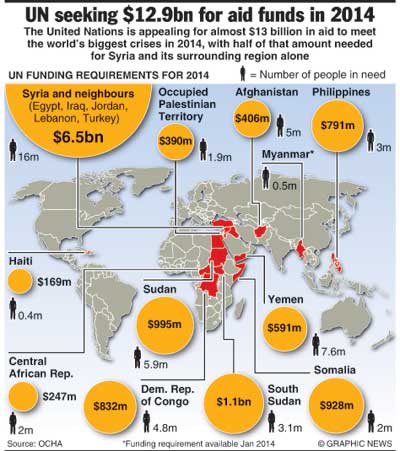Reply To:
Name - Reply Comment
Last Updated : 2024-04-19 08:50:00
.jpg)

.jpg) The United States President, Barack Obama, made a wise decision when he backed off in August from attacking Syria even after he claimed US intelligence agencies had clear proof that President Bashar al-Assad had crossed the so-called red line – a reference to the use of chemical weapons.
The United States President, Barack Obama, made a wise decision when he backed off in August from attacking Syria even after he claimed US intelligence agencies had clear proof that President Bashar al-Assad had crossed the so-called red line – a reference to the use of chemical weapons. The US move indicates a lack of foresight in the United States’ Syria policy. It apparently took lightly the warnings of the rise of extremism in post-Assad Syria.
The US move indicates a lack of foresight in the United States’ Syria policy. It apparently took lightly the warnings of the rise of extremism in post-Assad Syria.
Add comment
Comments will be edited (grammar, spelling and slang) and authorized at the discretion of Daily Mirror online. The website also has the right not to publish selected comments.
Reply To:
Name - Reply Comment
On March 26, a couple arriving from Thailand was arrested with 88 live animal
According to villagers from Naula-Moragolla out of 105 families 80 can afford
Is the situation in Sri Lanka so grim that locals harbour hope that they coul
A recent post on social media revealed that three purple-faced langurs near t

10 Apr 2024
09 Apr 2024